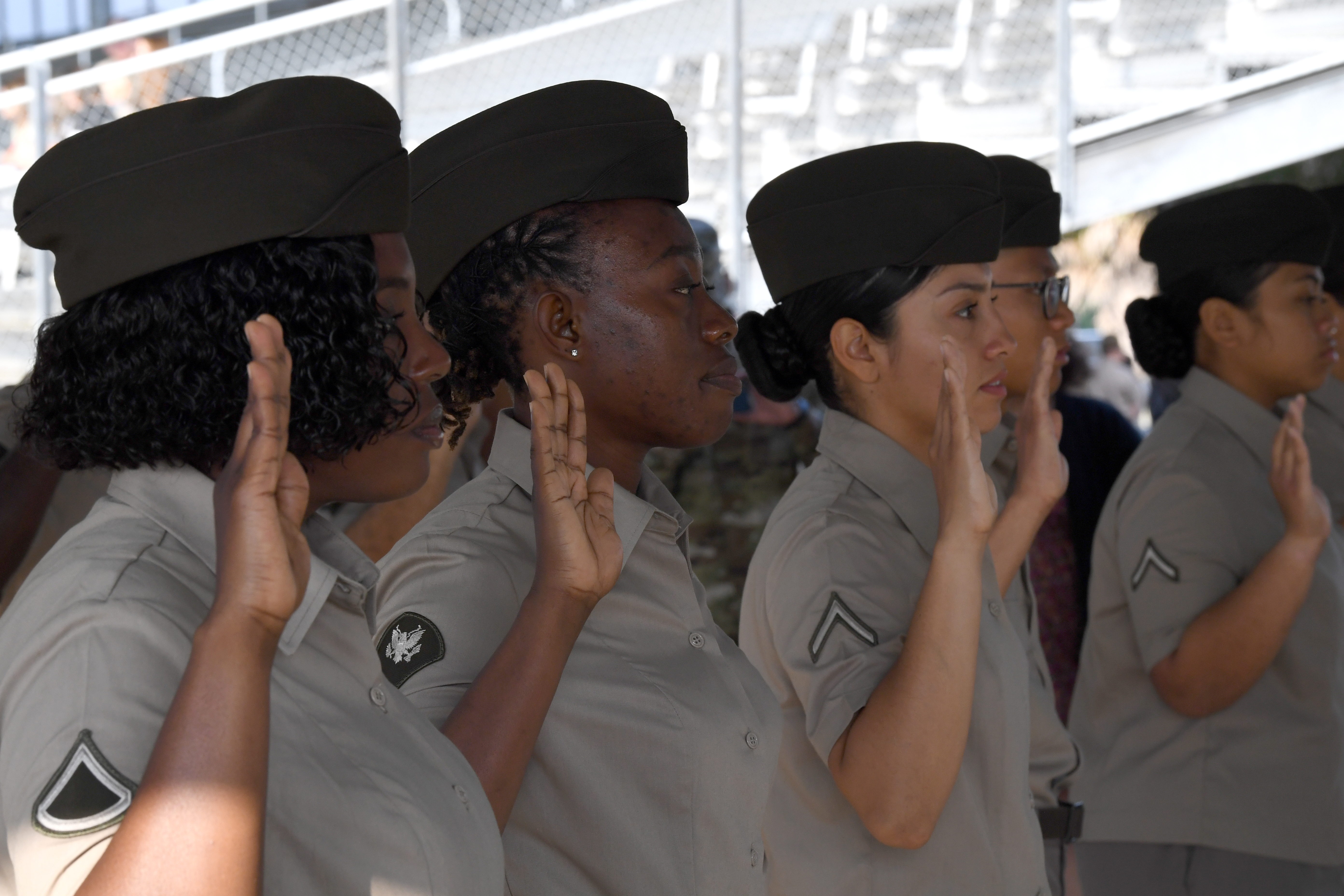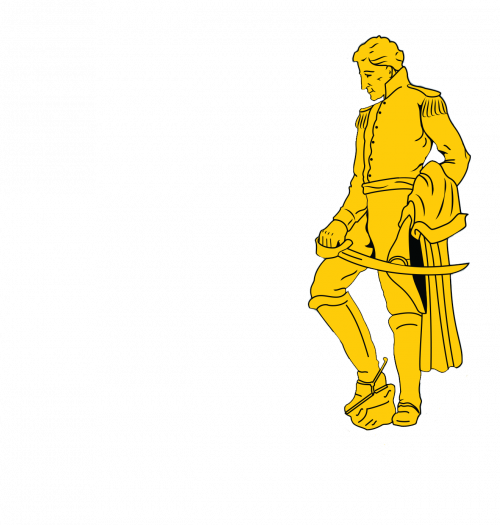
Soldiers from 1st Battalion, 34th Infantry Regiment take the Oath of Citizenship before their unit’s graduation ceremony, June 15. The newly-minted Soldiers decided to take advantage of the Expedited Naturalization Executive Order signed into law by former President George W. Bush on July 3, 2002. (Photo by Nathan Clinebelle)
Becoming an American; the Army way
By Emily Hileman, Fort Jackson Public Affairs
Twenty-five Soldiers saw their dreams come true in more ways than one as they became naturalized American citizens during a naturalization ceremony prior to 1st Battalion, 34th Infantry Regiment’s Graduation on Fort Jackson, June 14.
For many of us, being an American citizen is all we know, but for others, it’s a distant dream and an uphill battle. The newly-minted Soldiers decided to take advantage of the Expedited Naturalization Executive Order signed into law by former President George W. Bush on July 3, 2002.
This executive order allows an exception to the usual requirements for naturalization during times of armed conflict with a hostile foreign force. Naturalization is the term for the legal process by which a non-American may apply for and acquire American citizenship.
“They can apply for citizenship a couple of ways,” said Dr. Ken Zimmerman, Fort Jackson supervisory security specialist said. “They can go online and create an account and fill out their Form N-400 or they can start the paper copy of Form N-400 and complete it here in training.”
Form N-400 is the 20-page Application for Naturalization and while there’s no shortcut for the form, the process can be expedited during Basic Combat Training.
A few days after trainees arrive to Fort Jackson, all legal immigrants receive a naturalization brief from their Battalion legal team.
“While they’re in basic training, they fill out the Form N-400 and their chain of command sends it to their battalion legal,” Zimmerman said.
“The legal assistants ensure the packets are complete. The packets are then mailed off to the U.S. Citizenship & Immigrations Services mailbox with a spreadsheet containing the applicants’ information, so the field office can begin working on them.” It is very much a team effort.
Trainees then work with their battalion points of contact and USCIS to complete the process. Although it is expedited, applicants must be fingerprinted, interviewed, and take the Naturalization exam, which is a series of questions that span topics such as principles of American democracy, the American system of government, rights and responsibilities, history, geography, and holidays.
“If the applicant has everything filled out, their biometrics are good … they’ll do an interview and then they’ll be given their exam all by a USCIS Officer,” Zimmerman explained. “Once they complete the interview and pass the test, they receive a date when they’ll take the Oath of Allegiance to the U.S. and become an American citizen.”
For those that are unable to complete the process in 10 weeks, there’s still hope. “There’s a high percentage that their paperwork doesn’t come back within 10 weeks,” Zimmerman said. “Once they get to their (Advanced Individual Training), they can go online and update their address change, so the proper USCIS field office can continue with their application. They can also call the Military liaison at USCIS.”
Roughly, 11-12% of each training battalion are legal immigrants, Zimmerman said. Not all immediately apply for citizenship, but they’re able to apply at any time due to their honorable service in the military.
“I feel so happy because all of my life I wanted to be a US citizen,” said Pvt. Joovinx Michel, who is originally from Haiti. “Now I get the opportunity, so it’s a great day for me.” Michel has spent his entire life dreaming of being an American citizen and serving in the Army.
“I chose to join the U.S. military because I want to serve and I want to have so much opportunity for my life,” he said. Michel said his family is also happy for him and many are traveling from Haiti to watch his accomplishments unfold. “I have a lot of people coming. My brother, cousins, uncle and my father are all coming from Haiti to support me on the great day.”
Pvt. Ayram Aguilar from Mexico said her stepfather’s dedication and service to the military influenced her decision to join.
“He’s been a role model for me most of my life,” she said. “And I want to be a role model for my two daughters. This is a dream come true.”
When Pvt. Soumiyatou Mfonguie from Cameroon gave birth, she couldn’t imagine being away from her daughter for more than a day, let alone 10 weeks, she said.
“I wasn’t sure if I was going to get through it, but I’m here,” she said. “I don’t know how, but I’m here and I’m so proud of myself. If you want to do something, nothing can stop you,” Mfonguie said to those considering making the same decision she did. “Everything, even the physical part, is in your mind.”





